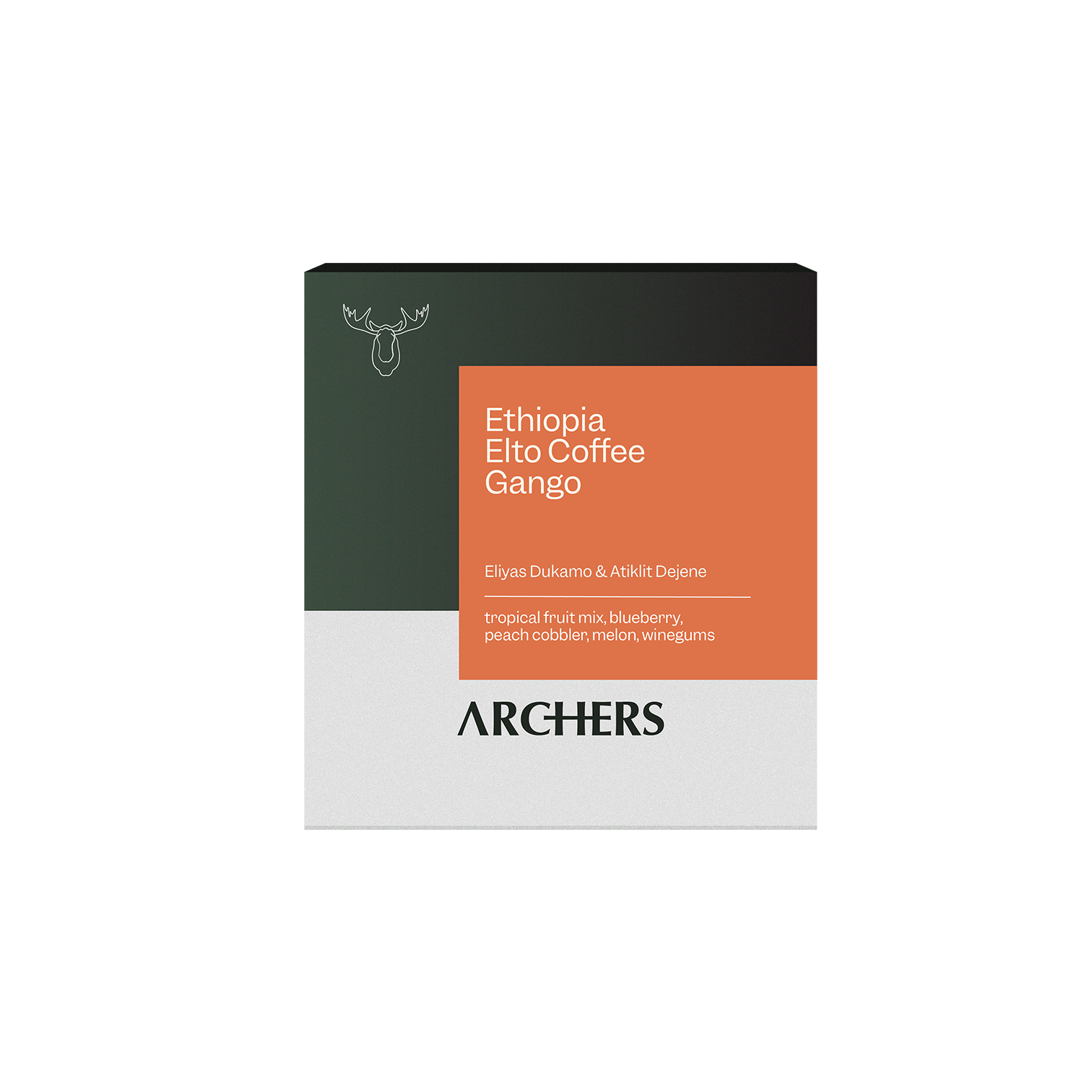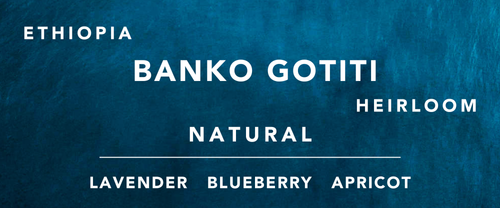
Ethiopia - Elto Coffee, Gango
Tasting Notes
Description
Producer: Elto Coffee / Eliyas Dukamo & Atiklit Dejene Farm: Gango Village Location: Bensa, Sidama Variety: 74158 Process: Natural Anaerobic 96 Hours Altitude: 2,300 masl Fermentation ▪▪▪▫▫ Sweetness ▪▪▪▪▪ Acidity ▪▪▪▫▫ Roast ▪▫▫▫▫ Elto Coffee is the passion project of Sidama Bensa-based couple Eliyas Dukamo and Atiklit Dejene. Their activities aim to honor every facet of coffee by producing exclusive and outstanding nano-lots. They do this by using the highest quality cherries cultivated and harvested by the smallholder farmers in the proximate communities and processing them through contemporary updates to traditional methods and styles. They named their company “Elto,” which we learned from Atiklit, means “more than passion” and “abundance” in the Sidamic language. Their aspiration is for every Elto coffee to be the most exciting cup a consumer has ever tasted. Guided by the values of honesty, respect, and humility to always remain open to learning, they are committed to engaging in meaningful relationships with their connections throughout the value chain, fostering a spirit of dynamic creativity in the industry, and showcasing the Elto rendition of Sidama Bensa coffees to the world. They consider their greatest task to be empowering their partner coffee farmers through more rewarding returns for their assiduous work. Gango Village is situated in the well-endowed Sidama Bensa highlands at 2,300 masl, neighboring more renowned higher-end specialty coffee cultivating communities like Hamasho Village and Bombe Village. The village was named Gango in recognition of a domestic equine hybrid of the same name in Sidamic language. The Gango are held in high regard because they embody the best traits of both the horse and the donkey— being hardier, longer-lived, and more patient than a horse, and less obstinate and more intelligent than a donkey. Gango Village is home to about 600 smallholder coffee farmers who grow inherently organic, sugar-rich, and high-quality coffee cherries inter-cropped with banana and enset, as the most common source of sustenance, in 1-2 hectare parcels of land. They harvest coffee cherries by selective handpicking, avoiding any harm to both cherries and the trees, but had been unable to fully explore the flavor potential and optimize the value of these cherries, due to limited know-how on updated cultivation and post-harvest processing best practices until Eliyas and Atiklit shared their expertise. Eliyas and Atiklit are seasoned specialty coffee professionals with grassroots working experience complementing their solid academic backgrounds. Both of them are professional cuppers trained by the Ethiopian Tea and Coffee Authority. Eliyas, who graduated with a Bsc in Marketing Management has taken the lead in Daye Bensa Coffee as Operations Manager. Meanwhile Atiklit, who graduated with a BSc in Agriculture focused on Plant Science, has built her career so far by working in Gesha Village as Coffee Processing Manager and in Daye Bensa as Lab Manager for Microlot Processing at harvest time. ‘Ethiopian heirloom’ is the general term commonly used to identify coffee originating from Ethiopia. It covers two classifications: Jimma Agricultural Research Center (JARC) varieties and regional landrace varieties. JARC varieties were developed and released to improve the productivity and livelihood of smallholder coffee farmers, to boost the country's coffee industry. These varieties are promoted and bred because of their good quality (when grown at the recommended elevations), resistance to or tolerance of adverse elements, and adaptability to diverse environmental conditions. There are 40+ JARC varieties comprised mostly of pure line selections and a handful of hybrids. Regional landraces, meanwhile, are varieties that propagate in the wild, without regulated interventions. Sidama Bensa-grown 74158, a JARC variety generally observed to express Geisha-esque floral, citrus, and honeyed notes, has consistently ranked among the best at the Ethiopia Cup of Excellence and fetched the highest prices at the auction. For this lot, the perfectly ripe, hand-harvested, and carefully pre-cleaned cherries were placed in 50-60 KG plastic barrels and then sealed with lids having a one-way valve — to aid in maintaining an oxygen-free fermentation phase throughout the pre-determined 96-hour period. After this, the barrels were emptied onto the plastic net of raised wooden beds built at a height of 120cm, allowing the fermentation juices to sufficiently drain off of them, as the whole cherries were evenly spread out at 3 - 5cm thickness for proper air circulation above and below.
Origin
Purchase
Similar Beans
Based on tasting notes and processing method

Ethiopia - Layo Teraga Guji | Washed
Rogue Wave Coffee

Ethiopia Banko Gotiti Natural
Vibe With Coffee Roastery

Colombia - Cerro Azul, Geisha Natural
Archers Coffee

Colombia - Cerro Azul, Geisha Natural (Japan)
Archers Coffee